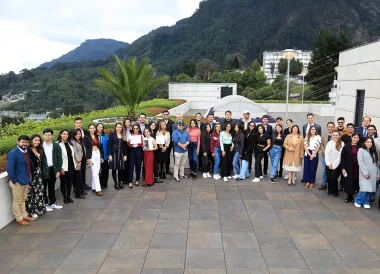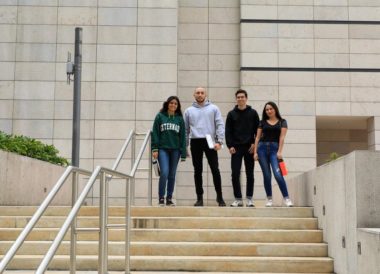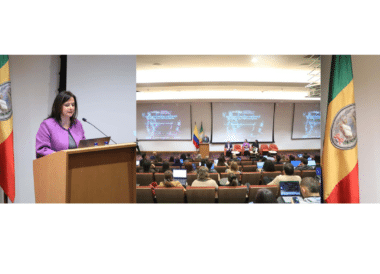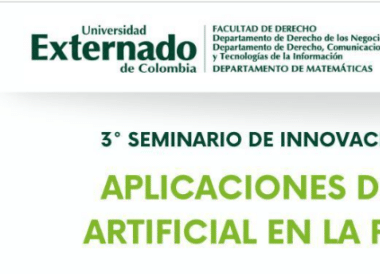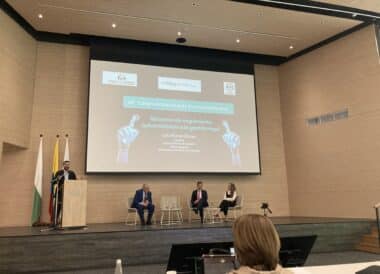28 de febrero de 2018
Three ideas about smart contracts
The evolution of electronic contracting has had three stages: the classic, in which the offer and acceptance by electronic means were recognized as a valid way to negotiate and enter into contracts. The proof of the traditional electronic contract depended on the technical reliability of the data messages that were crossed between the parties. The interpretation of the traditional electronic contracts did not offer major problems because they were expressed in common language and the clauses corresponded in general to the usual standards in their drafting and content.
1. CONSENT
The evolution of electronic contracting has had three stages: the classic, in which the offer and acceptance by electronic means were recognized as a valid way to negotiate and enter into contracts.
Later, the electronic contracts were published as terms and conditions on web pages and their consent could come from simple on-line navigation with the potential to access the content.
With electronic contracts, automation not only covers the conclusion of the contract but also the execution of the contract. the risks of unilateral modification, non-compliance or breach would disappear.
2. EVIDENCE
The proof of the traditional electronic contract depended on the technical reliability of the data messages that were crossed between the parties.
The evidence of the terms and conditions published on the internet sites depended on proving that the content had been published, there was the possibility of accessing the content and what was presented to the judge pr arbitrator corresponded to what was presented to the user or consumer.
The combination of cryptography and the characteristic distribution of ledgers in blockchain allows the basis of the weight of evidence of smart contracts to be presumption regarding the content of the transaction represented in the blocks of information.
3. INTERPRETATION
The interpretation of the traditional electronic contracts did not offer major problems because they were expressed in common language and the clauses corresponded in general to the usual standards in their drafting and content.
The interpretation of the smart contracts only requires the technical verification with respect to compliance with the instructions by the information system that incorporates the obligations of the parties. However, it is likely that complex interpretation will be required if there are inconsistencies between the original intention of the parties and the content of the obligations that were translated into computer code.
Artículos Recientes
¡Ya está disponible el caso! Segunda versión del Concurso Laboratorio de Estrategia Legal #LSL
Invitamos a los estudiantes de pregrado y postgrado de todas las carreras a presentar [...]
Masterclass Legal Operations: Transformando la Función Legal Empresarial de Guardián de Riesgos a Creador de Valor.
El Departamento de Derecho de los Negocios y la Facultad de Administración de Empresas [...]
Conclusión del Proceso de Reforma al Investor-State Dispute Settlement
En la semana del 12 de julio de 2023, durante la sesión anual de [...]
El Departamento de Derecho de los Negocios de la Universidad Externado de Colombia abre convocatoria para la vacante de Asistente de Investigación
¡Sé parte de nuestro equipo de trabajo! Perfil del cargo: Asistente de Investigación Apoyar [...]
Docente del Departamento de Derecho de los Negocios participó en el libro Blanco de la Asociación de Derecho Internacional
La Asociación de Derecho Internacional (ADI), una de la organizaciones más antiguas y prestigiosas [...]
CRYPTO IN COLOMBIA: PROSPECTIVE 2022
By: Daniel Peña Valenzuela The volatility of the main cryptocurrencies seems to be once [...]
Convocatoria de Monitores.
El Departamento de Derecho de los Negocios se complace en anunciar la apertura para [...]
¿Se avecina una regulación de la Franquicia por parte del Gobierno? ¿O lo impedirá la Corte Constitucional?
Por: Juan Miguel Álvarez* y Diana Marcela Araujo* En diciembre del 2020, el congreso [...]
Ciclo de seminarios de Innovaciones en Justicia Digital: un espacio desde la academia que replantea el futuro del sistema de justicia.
El Seminario en Innovaciones en Justicia Digital es un evento de la Universidad Externado [...]
Rostros de mentira: Retos legales producidos por las ‘Deepfakes’
Palabras clave: Deepfake, IA, contenidos audiovisuales, redes generativas adversarias, derecho probatorio, intimidad personal. Una [...]
Memorias: Tercer seminario de innovaciones en la justicia digital- aplicaciones de la inteligencia artificial en la práctica judicial.
El pasado 19 de septiembre de 2024, las instalaciones de la Universidad Externado fueron [...]
Celebramos la realización del 40º Congreso Nacional de Derecho Comercial: Novedades y retos de la contratación mercantil y del arbitraje comercial
El pasado 30 de octubre, en Medellín, se celebró el 40º Congreso Nacional de [...]



